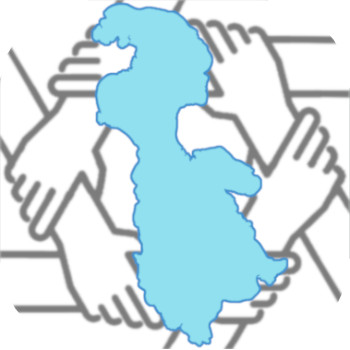Given that humans are social beings, each person's performance affects society and the wider world in addition to oneself, and it is impossible to isolate an individual and their performance from these contexts.
One can accomplish excellent achievements in personal, familial, social, and global development by carrying out one's personal obligations and respecting the rights of others, including humans and animals, as well as their environment. The best use of energy and water, for instance, can be accomplished through a variety of strategies. These include taking public transportation rather than driving a private vehicle, turning off extra lights, dressing appropriately to reduce the temperature in the room, avoiding the purchase of energy-intensive vehicles, etc., using smart taps at home and cutting down on bathing time, or utilising household water network devices and technology, such as standard shower systems, can save millions of litres of fuel and millions of litres of water per day, and as a result, these actions can stop environmental degredation, global warming, and therefore, the reduction in rainfall.
We should all be aware that, in addition to our obligations to our families, friends, and ourselves, we also have obligations to the environment and the world. Because these elements are interdependent and do not exist in isolation, problems arising from any one of these elements will also affect the other elements.
It is our responsibility as citizens of Urmia Lake's catchment area to address the issues that have arisen in Urmia Lake, and we must do so. No matter what kind of job or position you hold—farmer, industrialist, administrator, employee of the government, housewife, etc.—we all have an obligation to stop Urmia Lake from drying up. Depending on our role, we must take concrete steps to restore Urmia Lake because this fire that has been started will soon consume us all and ruin everything we have worked so hard to achieve.
Consequently, the following actions are required:
- Growing crops that need a lot of water, like sugar beets and apples, digging wells, using inundation irrigation, and other practices that have contributed significantly to Urmia Lake's drying up are examples of how a farmer should not harm the environment in the name of his personal interests. These farmers should be aware that the fertile lands that are causing harm Urmia Lake will soon cause the dried-up lake to become a salt marsh, forcing the farmers to abandon their productive land. Illnesses like cancer is also one of the adverse effects of Urmia Lake drying up.
- Office officials or employees must fulfil their responsibilities towards Urmia Lake and the environment, and use competent consultants to design projects, especially water projects such as dams and water treatment facilities, and energy projects such as power plants and equipment that consume energy and water, etc. They should also refrain from giving permission to build deep wells, for farmers to change the method of their farming from dryland farming to irrigated cultivation, and to farm agricultural products that need a lot of water, such as sugar beet and apple. The executive officials who signed the construction permit for the Mahabad sugar beet factory in this state of Urmia Lake have committed nothing less than a crime against humanity because this factory requires thousands of hectares of land under sugar beet cultivation, which is irrigated directly from Urmia Lake's water. Also, officials and experts who issued permission to build deep wells in the marginal areas of Urmia Lake are directly responsible for the drying up of Urmia Lake, and as a result, in the future, they will be responsible for the migration of millions of innocent people from the region.
- Rather than putting a higher price on water to discourage use, the region's administrative officials should mandate the use of smart water taps and other modern technological systems to purify and recycle used water back into the environment and Urmia Lake.
- In addition to making the best use possible of water and energy resources, manufacturers and craftsmen also need to use contemporary devices in their production lines to reduce energy consumption and prevent the waste of resources down the road. They also need to use systems in their sewage and cooling systems that recycle used water back into the cycle of consumption. Particularly, automakers have a responsibility to the environment to fulfil by creating high-tech, low-consumption vehicles rather than focusing only on their immediate financial gain.
- Housewives' management skills can aid in the preservation of metropolitan water. Since the rivers that feed into Urmia Lake provide the water needed for residences, excess water can return back into the lake by being used efficiently in homes.
To put it briefly, everyone in the workforce ought to conserve as much energy and water as they can. As inhabitants of Urmia Lake's catchment area, we should be aware that if the lake dries up, we will be forced to relocate to other regions of the nation or the globe, and so, we are forced to assist in reviving Urmia Lake.
